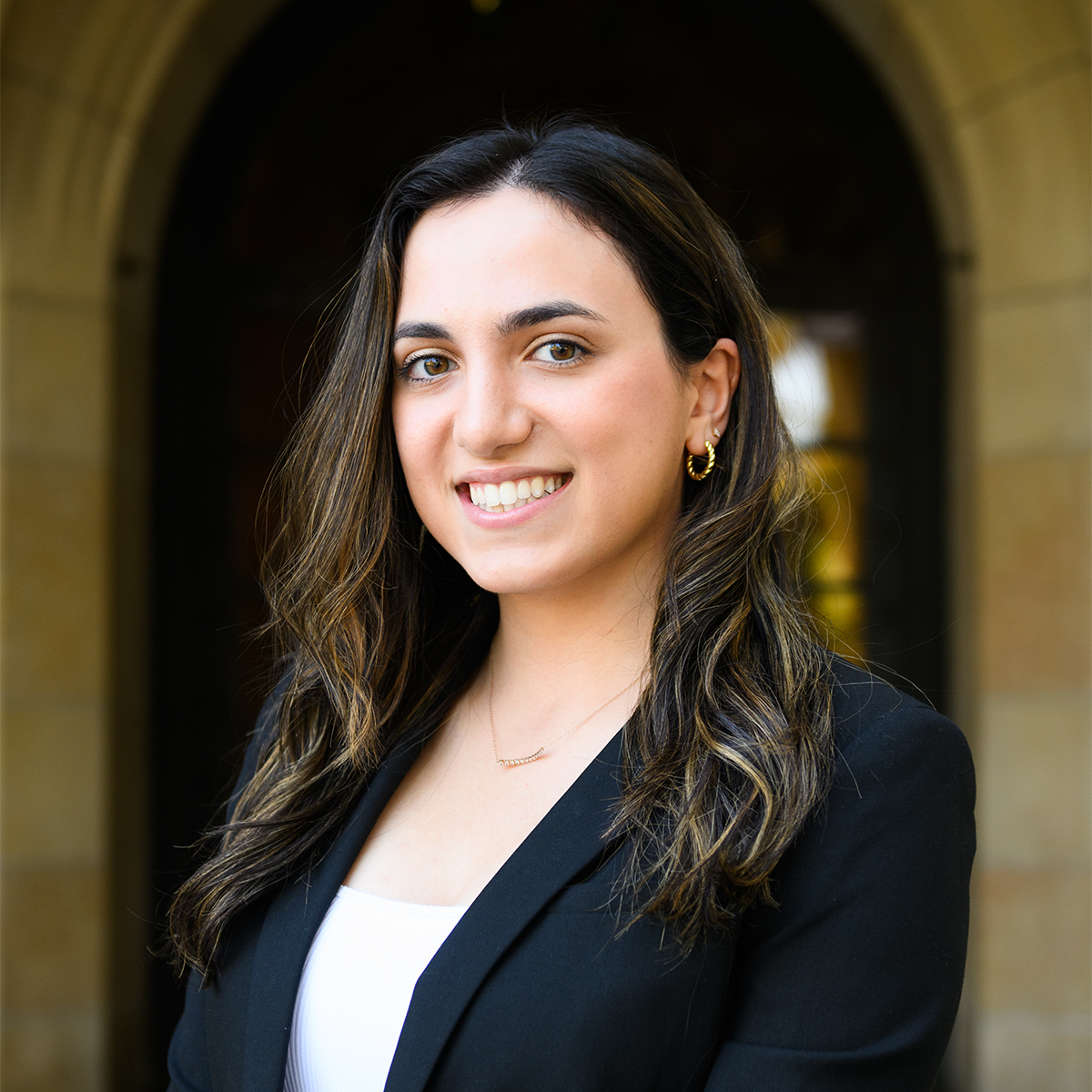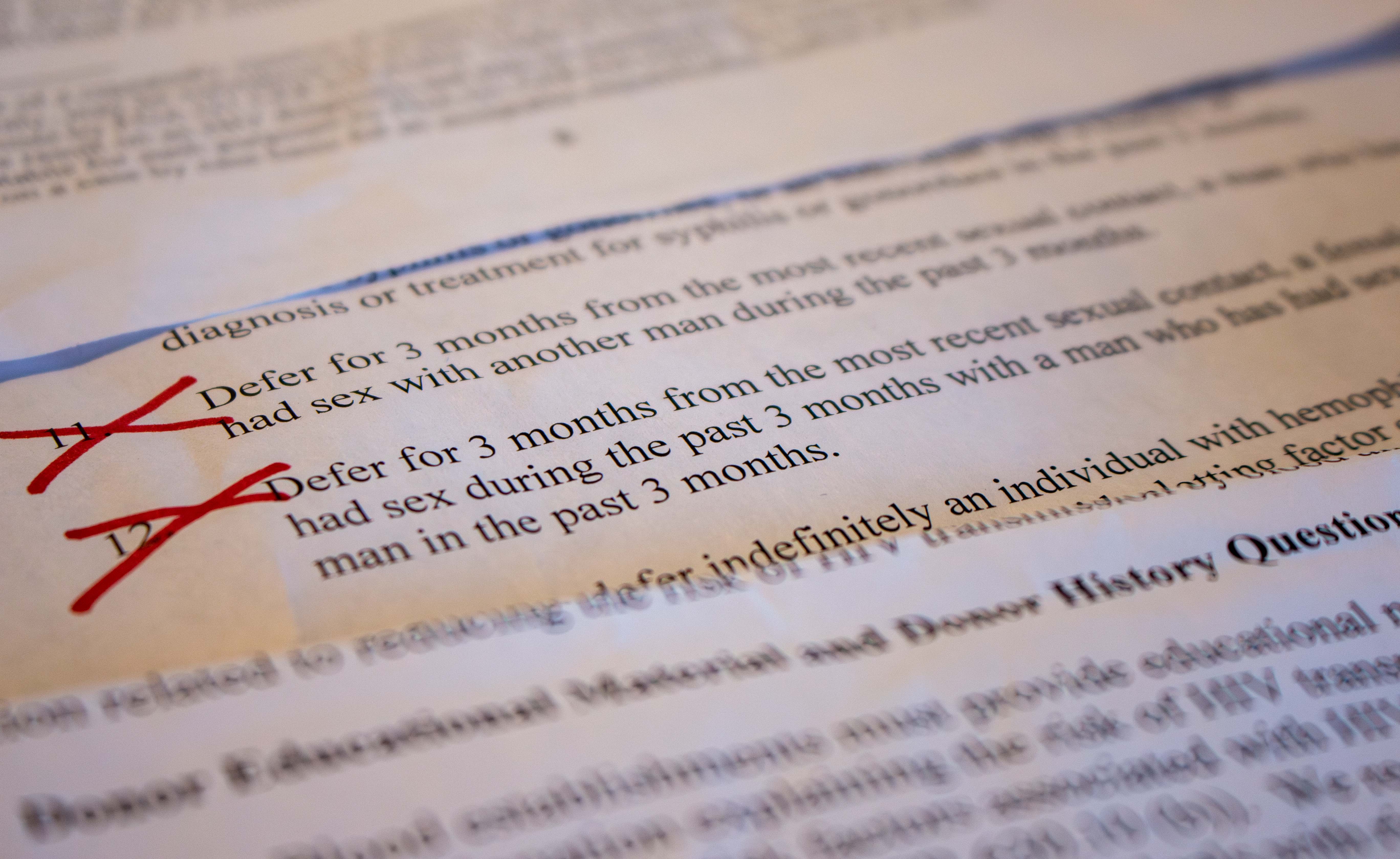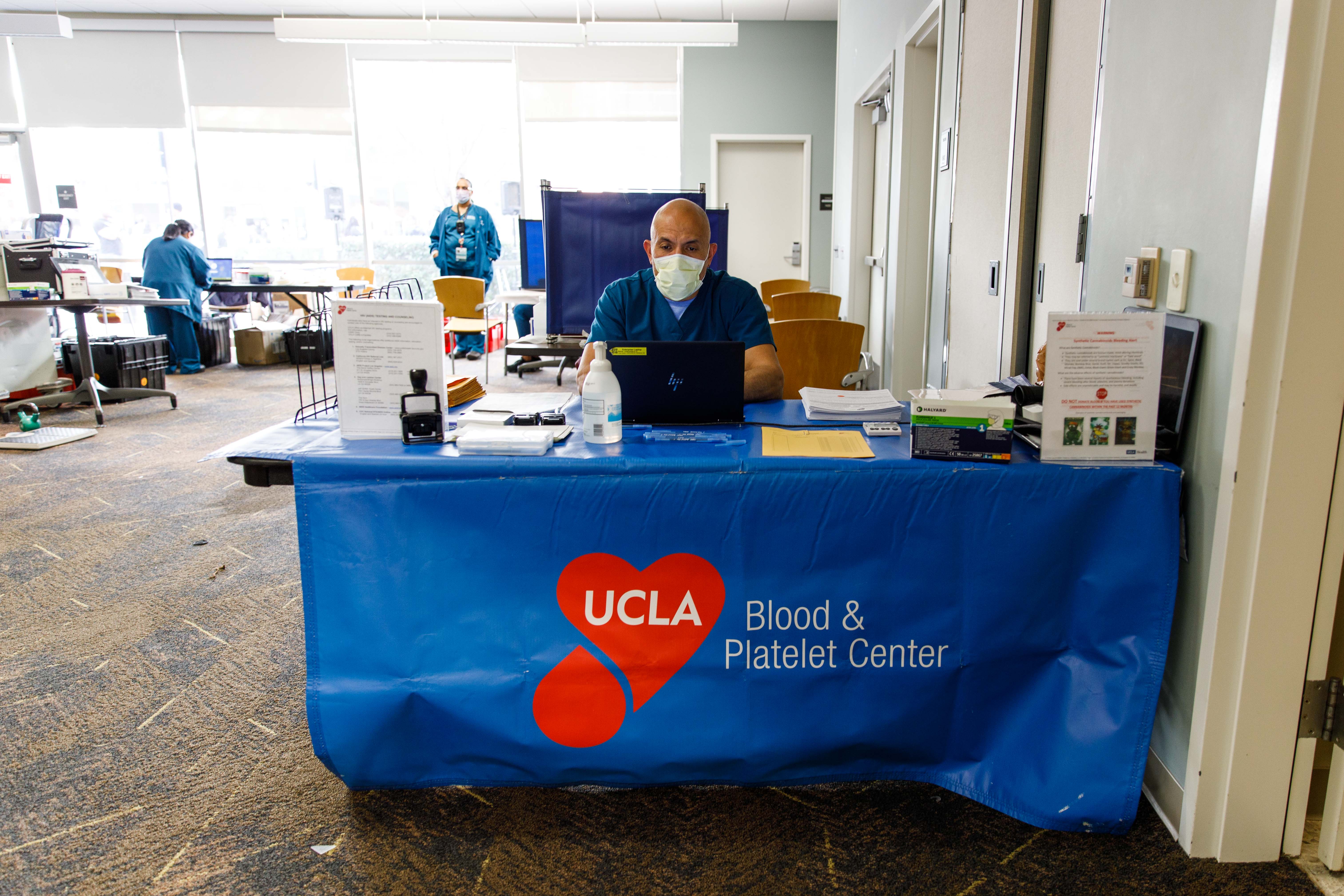World Blood Donor Day ceremony highlights relationships between donors, patients
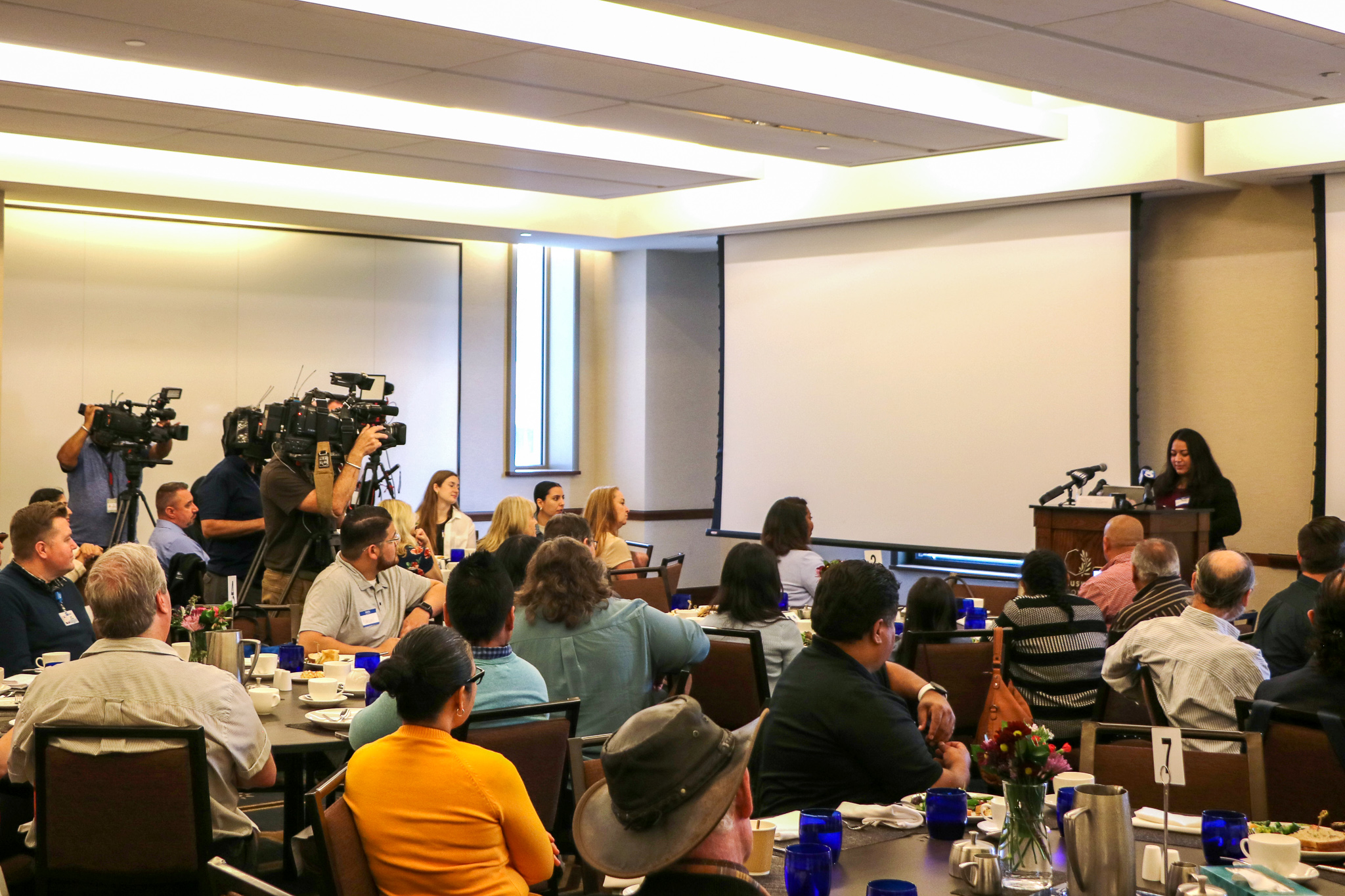
Vanessa Cruz stands at a podium at the UCLA Blood & Platelet Center’s 24th annual World Blood Donor Day event. During the event, Cruz’s son Wesley Rae, who received red blood cell and platelet transfusions as part of his treatment, had the chance to meet one of his blood donors. (Courtesy of Noah Danesh)
This post was updated June 23 at 8:52 p.m.
On World Blood Donor Day, 5-year-old Wesley Rae met one of the donors who helped save his life.
During the UCLA Blood & Platelet Center’s 24th annual World Blood Donor Day event Wednesday, hosted at the Meyer and Renee Luskin Conference Center, Rae met Kaz Ando, one of his platelet donors. Rae, who was diagnosed with severe combined immunodeficiency, was born without an immune system, which meant he needed novel therapies alongside blood transfusions.
Ando, a former UCLA Health biostatistician, said he began donating blood in college but started regularly donating at the Blood & Platelet Center after coming to UCLA for work. He added that he has donated blood nearly every month for about 20 years in addition to bone marrow donations following several UCLA students’ leukemia diagnoses.
Attendees of the event included physicians, researchers and other frequent blood donors. In the first World Blood Donor Day ceremony since 2020, members of the Blood & Platelet Center expressed their appreciation for attendees’ lasting dedication, such as through the meeting between Ando and Rae.
“We are so fortunate to be here today to be able to recognize and celebrate this life-changing connection – the connection between blood donor and blood recipient,” said Eric DeCair, director of the Blood & Platelet Center, during the event.
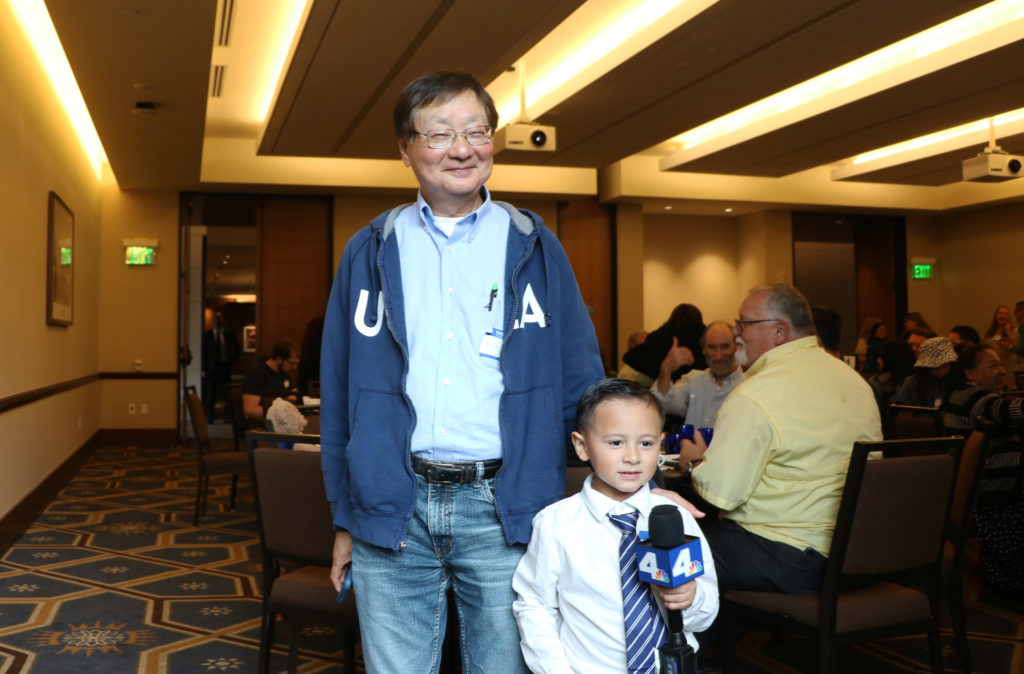
The gene therapy that allowed Rae to begin producing immune cells was developed by Dr. Donald Kohn, a distinguished professor of pediatrics and microbiology, immunology and molecular genetics. Kohn said that before treatments were developed, patients with SCID commonly died in infancy since their bodies could not fight infections. However, Rae was able to enroll in a clinical trial run by Kohn’s lab, Kohn said.
During the clinical trial, Rae’s bone marrow was modified so it could produce appropriate immune cells, Kohn said during the event.
“We took out some of his bone marrow in the laboratory, added the gene that he’s missing and transplanted it back into him,” he said in a later interview.
Before the transplant, Rae underwent chemotherapy to provide space for the new cells to grow. This treatment meant he needed red blood cell and platelet transfusions after the transplant until he was able to produce normal levels of immune cells, Kohn said during the event.
Vanessa Cruz, Rae’s mother, said her son’s need for blood transfusions demonstrates the importance of blood donation.
“He wasn’t in any physical trauma,” Cruz said. “He wasn’t bleeding out. But he did need to be strong enough to withhold that transplant and multiply cells, and we couldn’t have done that without that blood donation and that platelet donation.”
Because of the successful treatment, Rae was able to complete preschool, she added during the event.
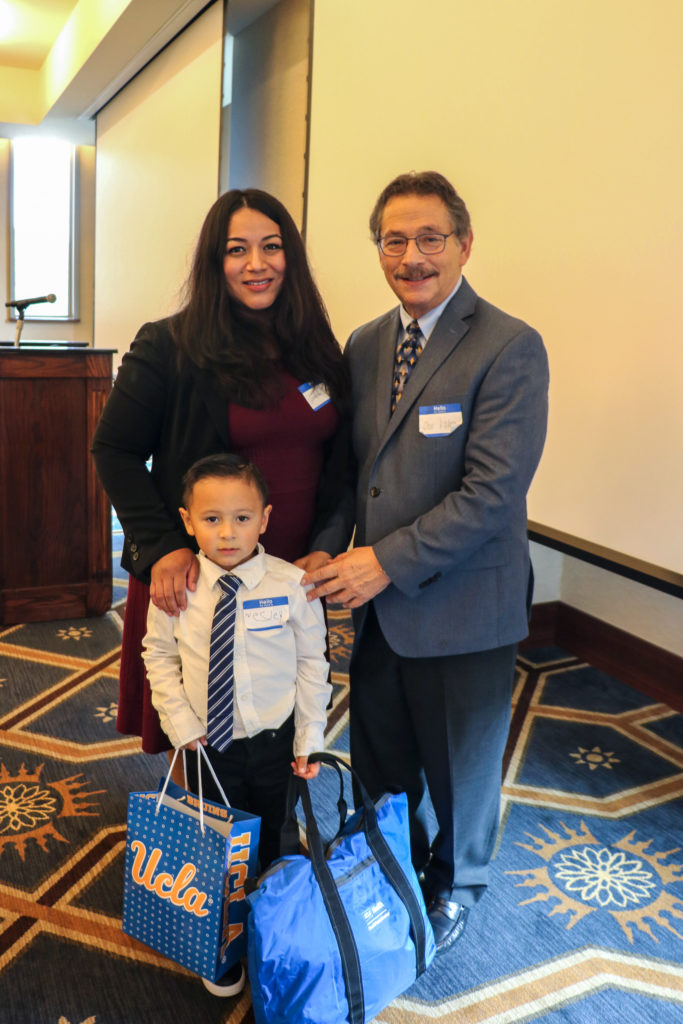
Tom King, the campus blood donor recruiter for the Blood & Platelet Center, said he hopes that stories such as Rae and Ando’s serve as inspiration for donors and staff.
“Our work … is about education and furthering education,” he said. “This is why we do what we do.”
Kohn said donating blood is relatively simple but can lead to great rewards – including saving lives. Although donors do not always know where their blood will go, it will ultimately help a person in need, Ando said.
Cruz added that she would encourage everyone who is able to donate blood to do so.
“There’s something special … (about) a person who donates to somebody they don’t know,” she said. “There’s no words to express how grateful I am for these selfless acts of kindness that saved my son.”



